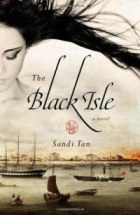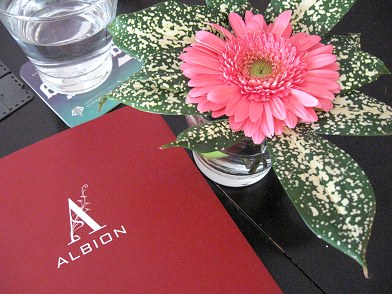Though he's left the kitchen, everyone's favourite trash-talking chef is still dishing out food for thought
A bitter and angry chef, resigned to remain rooted behind a stove until he dies, lets it rip in an over-testosteroned rant-fest of a memoir dedicated to his ilk and pokes fun at TV chefs, vegans, and the like. He's confident that the book will
never get him on TV, take him to exotic foreign locales, or hook him up with more famous, qualified chefs.
Anthony Bourdain has eaten a lot of things since then, including his own words; check out his other books:
A Cook's Tour and
The Nasty Bits.
Medium Raw: A Bloody Valentine to the World of Food and the People Who Cook is the book fans have been waiting for since That Book,
Kitchen Confidential. Profane and profound, his take on all things close to his heart are a joy to read, especially in countries where freedom of expression also comes with a hefty rulebook to safeguard presumably fragile egos.
Hunter S Thompson may be the father of gonzo journalism, but it's this chef-turned-author and travel show host that many of us with an opinion and a shtick to bandy about want to be one day.
From
Medium Raw, we learn a bit more about what happened to Bourdain since That Book came out. Why he became a father at fifty. The new targets of his ire. The
Top Chef contestant anonymously featured in That Book. The deal behind David Chang, who could be the next Angry Writing Chef. More tantalising are the latest updates about the prominent personalities featured in That Book, and why Bourdain called that restaurant reviewer a dirty name.
Burning bridges
We also learn, in spite of all he has now, why Bourdain doesn't seem happy. In his jottings one still senses the jitteriness of someone who had lost something good when he least expected it - and constantly looks out for the next such catastrophe. If he's not burning bridges, one suspects he's checking to see if someone else will burn them, or if the bridges spontaneously combust.
Probably explains his apparent gusto for the life he's leading now; if he concentrates on going forward, he can forget about looking over his shoulder.
In the prologue, we get a sense of how different things have been for Bourdain since
Kitchen Confidential, published over a decade ago. The clandestine gathering of world-class chefs at a secret dinner capped by a taste of the controversial
ortolan dish is worlds apart from his old life. He not sure why he's here, other than being a guest of his best pal, who sounds suspiciously like the Michelin-starred chef of Le Bernadin, Eric Ripert.


UK edition of Medium Raw from Bloomsbury with new
cover (left) and US edition from HarperCollins/Ecco
Sure it's fun, exciting. But he also sounds unsure, lost, out of place. Maybe a little guilty. I shouldn't be having this much fun, he seems to be thinking. This is not my circle, which I left - or rather,
abandoned - for a more cushier gig.
Is that why he flagellates himself so ruthlessly in the first few chapters of
Medium Raw? "Heretic", "sell-out", he calls himself. He compares himself to a prostitute, drops names of chefs who've taken similar paths and explains why they did it, as if it's something needing justification. The calamitous Caribbean island getaway with a crazy rich chick, after the end of his first marriage, must've been very painful to recall.
Paid his dues
He gets over it, though. He's paid his dues, I think, and his new jet-setting life now is much better suited for his age. "If I go back to the kitchen now, it would break me," he confesses in
The Nasty Bits.
Besides being less angry, he's also more neutral, finding silver linings in the same subjects he used to run down. Such performances, however, feel forced, like in the chapter on US chef and food activist Alice Waters, the "Pol Pot in a muumuu". And he's still shining the shoes of British chef and Parkinson's disease sufferer Fergus Henderson. It made sad reading.
Similarly forced is the chapter devoted to food porn. Though formulaic, it still had enough mojo to drive one into night markets, looking for placebos to lush descriptions of chicken butt
yakitori.
Foreign audiences outside the US, however, may have problems with his references to obscure pop and food culture. He doesn't explain, in one chapter, why he considers Mario Batali and Eric Ripert heroes. When this book was first published, Ripert chaired a New York-based charity that rescues unused food to feed hungry people, and Batali was active in charities for children.
...Well, it is said that he says a lot – and says it damn well, too – about the things he feels strongly for.
In the ten years between
Kitchen Confidential and
Medium Raw, he never really left us at all. He's still slinging it, commenting on more than just food: in the news, online, in the airwaves, on TV - seemingly one of the last honest people out there who speaks his mind with little thought of the repercussions, because some things
have to be said.
Keep talking, Tony. We're all ears.
Another version of this review was first published in the July - September 2012 issue of MPH Quill. This review was based on the 2010 Bloomsbury (UK) edition of the book.
Medium Raw
A Bloody Valentine to the World of Food and the People Who Cook
Anthony Bourdain
Bloomsbury Publishing Plc (2010)
281 pages
Non-fiction
ISBN: 978-1-4088-0934-1




















